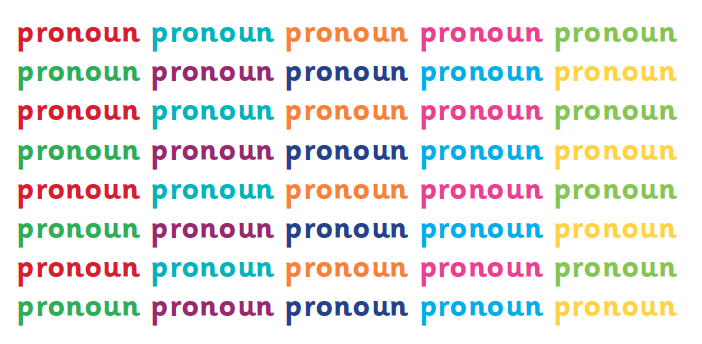

People can introduce themselves by their name and their pronouns in every setting, not just in LGBTQIA+ spaces.Īdding pronouns to email signatures and business cards can also help normalize the importance of using correct pronouns and fostering an inclusive environment. For example, the LGBTQIA Resource Center suggests using “they” when one does not know a person’s gender.īy using gender-neutral pronouns, people are not making assumptions about another person’s gender, nor are they making stereotypical assumptions about job roles - such as using “he” pronouns for a doctor or “she” pronouns for a receptionist.Īnother way to be inclusive is for a person to share their own pronouns.

One way is to not assume a person’s pronouns. There are several ways that people can be inclusive and respectful to other people’s pronouns. No one should assume another person’s gender or gender pronouns. Only the person themself can determine what their gender identity is, and this can change over time. Gender is not neatly divided along the binary lines of “man” and “woman.” For example, some people do not identify with any gender, while others identify with multiple genders.

This refers to the way a person identifies along the gender spectrum. People often develop their gender identity and gender expression in response to their environment. Gender is a social construct and merely denotes the social and cultural role of sex within a given community. Some people may use the terms “sex” and “gender” interchangeably, but they mean different things. A person affirming another’s pronoun use can help others feel comfortable with their external appearance and their gender identity.

One 2016 study found that affirming a person’s pronouns - and, in extension, their gender - lowers depression and raises self-esteem. Ignoring a person’s pronouns can also imply that people who are under the transgender umbrella - such as those who are transgender, nonbinary, or gender non-conforming - do not exist.īy using a person’s pronouns correctly, people can reduce the adverse effects of social oppression. Using the wrong pronouns can be offensive or even harmful. By assuming a person’s pronouns, it is possible to send an unintended message that people must look a certain way to be able to use their pronouns. It is important to never assume a person’s pronouns. Pronouns are important because, by using a person’s pronouns correctly, other people are showing them respect and forming an inclusive environment.


 0 kommentar(er)
0 kommentar(er)
